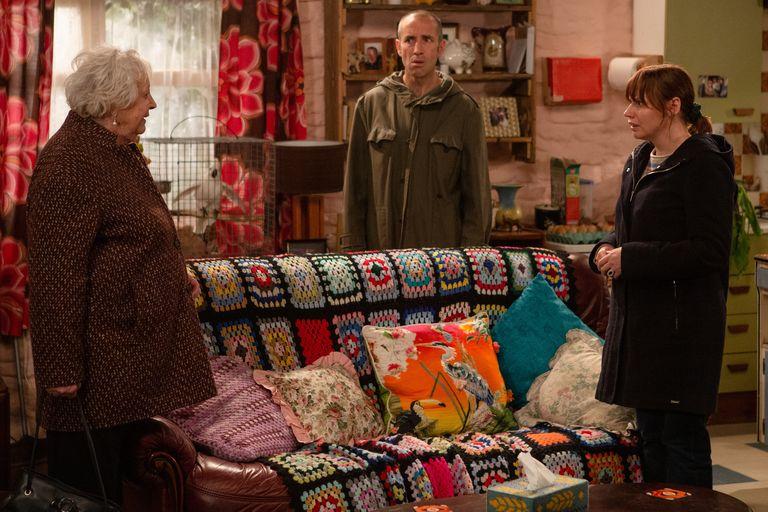Huntington’s disease: What are the symptoms and can it be treated?
Emmerdale character Lydia Hart might have the hereditary condition
Fans of ITV soap Emmerdale are about to see another emotional storyline unfold for character Lydia Hart, as she discovers she may develop Huntington's disease.
During Monday night’s episode, Hart came face-to-face with her long-lost mother, Agatha, who explained that her father died from the genetic condition.
Hart was shocked to realise that there is a likely chance she could have the illness.
Now, the character faces a difficult decision over whether or not to take a test to see if she does have the hereditary condition.
So just what is Huntington’s Disease and what are the symptoms? Here’s everything you need to know.

What is Huntington’s disease?
Huntington’s disease is a hereditary condition that stops parts of the brain working properly over time, the NHS states.
The disease typically starts at around 30-50 years of age but can begin much earlier or later.
It gets gradually worse over time and is usually fatal after a period of up to 20 years.
What causes Huntington’s disease?
The condition is caused by a faulty gene that results in parts of the brain becoming gradually damaged over time, the NHS adds.
Huntington’s disease can affect both men and women, but you’re usually only at risk of developing it if one of your parents has or had it.
If a parent has the Huntington's disease gene, there is a 50 per cent chance of their children developing the condition, and potentially passing it on to their children too.
However, there is also a 50 per cent chance that a parent with the illness won’t pass the the condition onto their children.
Unaffected children cannot pass the condition on to any offspring they have.
It is extremely rare for someone to develop Huntington’s disease without there being a history of it in the family. Instead, this could potentially mean that one of their parents is or was a sufferer but had never been formally diagnosed.
What are the symptoms?
According to the NHS, early symptoms of the condition can include:
- Difficulty concentrating and lapses in memory
- Depression
- Stumbling and clumsiness
- Mood swings and personality changes
Later symptoms of the condition can include:
- Involuntary jerking or fidgety movements
- Difficulty speaking clearly
- Problems swallowing, speaking and breathing
- Personality changes
- Difficulty moving around
How many people does it affect?
According to research, it’s thought Huntington’s disease affects between one in 10,000 and one in 20,000 people in the UK. The disease affects men and women equally.
How is Huntington’s disease tested?
If you have a history of Huntington's disease in your family, your GP may refer you to a specialist for a test to see if you will also develop it.
The specialist will ask about your symptoms to see if it's likely you have Huntington's disease and rule out similar conditions, the NHS explains.
The doctor may also examine you and test things such as your thinking, balance and walking ability. Sometimes you might also have a brain scan.
A blood test to check for the Huntington's disease gene can also confirm if you have the condition.
Can it be treated?
There is currently no cure for Huntington’s disease, but treatment and support can help alleviate some of the symptoms and problems it causes.
Your GP could prescribe medication such as antidepressants to help ease mood swings, irritability and involuntary movements, however they won’t stop or slow down the progress of the condition.
Those with the condition can also get help and support from occupational therapists to help make everyday tasks easier, speech and language therapists to help with communication problems and physiotherapy to help with movement and balance.
Support is also available from GPs and organisations like the Huntington's Disease Association (HDA) on how to manage symptoms and improve quality of life.
You can contact the HAD by calling 0151 331 5444 or sending an email to info@hda.org.uk.
The HAD is open Monday to Friday, from 9am to 5pm. If you need help outside these hours please contact your GP, NHS Direct 111, your local Social Care Services or The Samaritans on 116 123.
Join our commenting forum
Join thought-provoking conversations, follow other Independent readers and see their replies
Comments
Bookmark popover
Removed from bookmarks